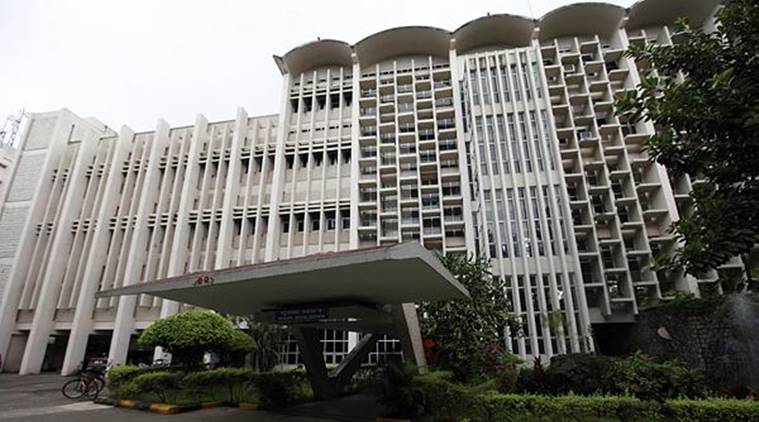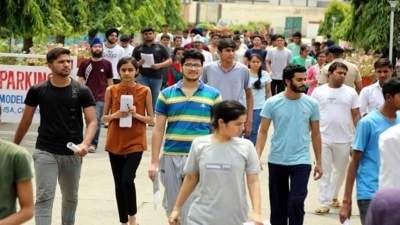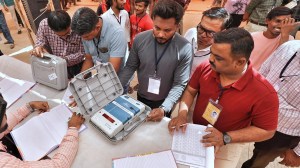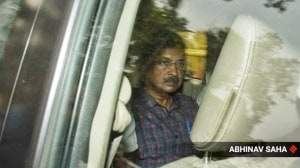- India
- International
Hiring, courses, fees: Delhi, Mumbai IITs set to get freedom to decide on these
In the case of IITs, both fee and course duration are areas on which only the IIT-Council can make decisions.
 For instance, IoEs are free to decide their tuition fee for domestic and foreign students and can have a flexible course duration and structure. In the case of IITs, both fee and course duration are areas on which only the IIT-Council can make decisions.
For instance, IoEs are free to decide their tuition fee for domestic and foreign students and can have a flexible course duration and structure. In the case of IITs, both fee and course duration are areas on which only the IIT-Council can make decisions.
A month after the Centre awarded Institution of Eminence (IoE) status to Indian Institutes of Technology (IITs) in Delhi and Mumbai, the HRD Ministry is considering freeing them of the IIT Council’s control.
Headed by the HRD Minister, the IIT Council is the highest decision-making body of all the IITs. In addition to coordinating the activities of the 23 premier engineering schools, the IIT Council advises on matters related to the duration of courses and lays down policy regarding cadres, method of recruitment and fee and scholarships. Its decision is binding on all the institutes.
However, UGC’s Institutions of Eminence Deemed to be Universities Regulations, 2017, under which IIT-Delhi and IIT-Bombay were awarded the eminence tag last month along with Indian Institute of Science (IISc), Birla Institute of Science and Technology (BITS), Manipal Academy of Higher Education and Reliance Foundation’s proposed Jio Institute, bestows the selected institutions with greater autonomy compared to other higher education institutions.
For instance, IoEs are free to decide their tuition fee for domestic and foreign students and can have a flexible course duration and structure. In the case of IITs, both fee and course duration are areas on which only the IIT-Council can make decisions.
“We want to remove contradictions. On one hand, as IoEs, the two IITs have extensive autonomy, but, under the IIT Act, they are still bound by the decisions of the IIT Council. This matter could be discussed at the upcoming meeting of the IIT Council on August 21,” said Higher Education Secretary R Subrahmanyam.

In March this year, IIT-Delhi had written to the HRD Ministry suggesting that the IIT Council reconsider the annual fee of Rs 6 lakh fixed for foreign students. The institute is of the opinion that the fee is too high and is deterring the enrolment of more foreign students. A domestic student, on the other hand, pays roughly Rs 2 lakh as tuition fee.
As an IoE, IIT-Delhi has the freedom to decide its fee for foreign students and doesn’t need to approach the Council for permission to effect any changes. But the institute has still urged the Centre to discuss the matter in IIT Council meeting this month.
According to Subrahmanyam, while the review of the fee charged to foreign students is on the meeting agenda, the matter of freeing IIT-Delhi and IIT-Bombay from the IIT Council’s control will also be discussed on August 21.
The Union Cabinet had approved UGC’s ‘Institutions of Eminence Deemed to be Universities Regulations, 2017’, in August last year. The regulations are aimed at creating an enabling architecture for 10 public and 10 private institutions to emerge as world-class institutions since the country has little representation in the international ranking of educational institutions.
Only higher education institutions currently placed in the top 500 of global rankings or top 50 of the National Institutional Ranking Framework are eligible to apply for the eminence tag. Private IoEs can also come up as greenfield ventures, provided the sponsoring organisation submits a convincing perspective plan for 15 years.
Once identified, the target for the IoEs would be to break into the top 500 bracket in one internationally reputed ranking framework in 10 years and figure in the top 100 over time.
Apr 18: Latest News
- 01
- 02
- 03
- 04
- 05







































